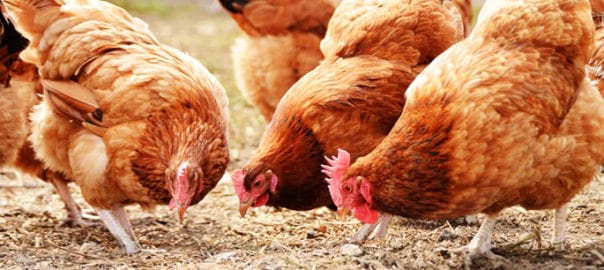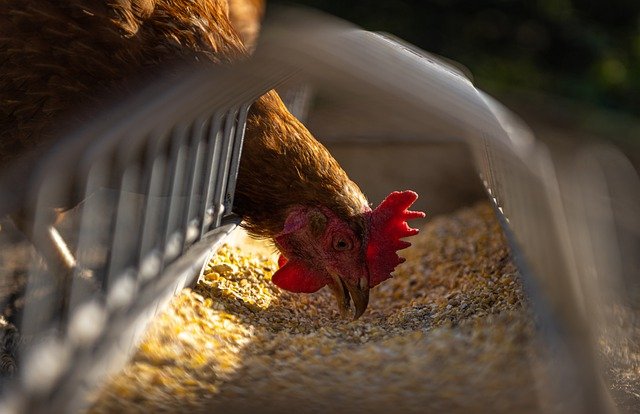Kienyeji Chicken Feeds
Subterms
Latest stories
More stories
-
1.5k Views
FeedCalculator: Make High Quality Poultry Feed With this Innovative App
Struggling to formulate poultry feed for your kienyeji chickens? It is no rocket science and there is now an even ingenuous app that you can download, install and start formulating your feeds with locally available recipes. Called the Feed Calculator, the poultry feed formulation app was created by some of the leading livestock experts and animal nutritionists in the Netherlands in partnership with farmers in developing countries such as Kenya. It has also been tested with poultry farmers in Tanzania with incredible results, allowing farmers to easily formulate well balanced poultry feed rations that improve their yields. The App is […] More
-
2.2k Views
Important Factors to Keep in Mind When Preparing Kienyeji Feeds
A growing number of Kenyans are now preparing their own kienyeji feeds for their flock mainly to cut down on the cost of production. However, some still do this in a haphazard manner. They put together all they can lay their hands on be it ugali, food scraps, omena, rotten maize and mix them up and serve their chickens. But is that really the right way? Here are some dos and don’ts to keep in mind when you are planning to prepare kienyeji feeds(kienyeji feed formulation) for your flock: Don’t Use Rotten Maize It is easy to understand why many […] More
-
21.9k Views
Best Feeds for Kienyeji Chicken
The typical farmer raising Kienyeji chickens does not have to stick to a very rigid feeding routine. Typically, the farmer will start with chicken mash up to 8 weeks and then transition the chickens to growers mash from 8 weeks onwards. After that, the chicken feed is supplemented with other food waste from the house such as ugali as well as with fishmeal and the feeds they pick up when roaming about in a free range environment. From 8 weeks onwards, you can begin supplementing their formulated feed such as growers mash with other food sources which should mainly consists […] More
-
2k Views
Kienyeji Chicken Feed Formulation
Poultry feed formulation is both an art and science; a science in the sense that you have get the empirical side right and an art because you need to understand your poultry feed ingredients and use what is locally available. You have to use the right ingredients and mix them in the right proportion. That requires understanding the nutritional needs of the chickens at every growing stage and then formulating a poultry feed that will meet their growth needs. The feed formulation should both be accurate and economical so as to help the poultry flock hit their genetic potential of […] More
-
1.7k Views
Kienyeji Feeds: Supplementing the Diets for Your Improved Kienyeji Chickens
The Improved Kienyeji Chicken breeds and other hybrids such as Kuroiler and Rainbow Rooster are actually meant to be reared in a free range environment or semi-intensive environment where they can scavenge for their own food. However, farmers generally give them the feed formulation such as the chick mash, growers mash, layers mash or finishers depending on the breeds in order to maximize on the production. Buying commercial food is however quite costly. You could easily see your feeding costs running to up to Ksh.12,000 per month for a flock of 200 birds if you do not manage your costs […] More
-
765 Views
Feeding for Improved Kienyeji Breeds
The advantage of feeding the improved kienyeji and other hybrid breeds such as Rainbow Rooster and Kuroiler chickens is that you can easily cut down on your feeding costs by supplementing the commercial feeds with some of the local feeds after 8 weeks when they are transitioning to growers mash. You can feed with the following:- Include local feeds such as grains (such as the sunflower seeds, sorghum, maize, kitchen waste and crushed groundnuts),omena, fish. Include the green vegetables such as cabbages, sukuma wiki and spinach. Check out our post on how to hang cabbages for your chicken in the […] More
-
946 Views
CRITICAL IMPORTANCE OF WATER TO CHICKEN
“We forget that the water cycle and the life cycle are one” – Jacques Yves Cousteau Water is probably the single most important component in chicken feeding and rearing. Most farmers may take it for granted but giving water in large quantities could be the one of the greatest things you do to chicken any day. The phrase ‘ad lib’ is usually used in describing how much water you give to chicken which basically means giving water in large quantities ‘without any restraint.’ In fact it has always been the misfortune of farmers we visit their farms when we tell them […] More
-
1.3k Views
Kienyeji Chicken Feed Formulation Guide
Here is the cover page of our Kienyeji Chicken Feed Formulation Manual. Order your copy now for only Ksh.500. To know more and buy 3 at cost of 1, Visit https://kienyejichicken.com/ More

